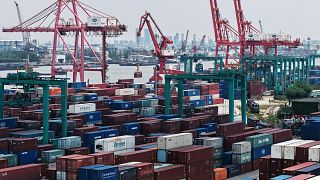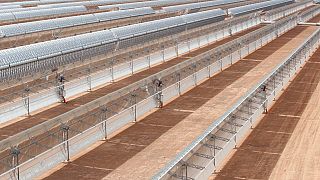South Africa
Spaza shops in South African townships are a lifeblood of local communities, contributing over 2.5 million U.S. dollars a year to the GDP.
The government has introduced training programmes to help spaza owners stay afloat as South Africa struggles to cope with a slowing growth rate.
For 60-year-old Rose Tau, her spaza shop in Soweto has helped her earn a living after she lost her job.
“I opened a spaza because I lost my job and I was unemployed. I was just sitting at home doing nothing. So because I am a person who likes talking to people, I decided to start a business and I opened this spaza shop,” said Rose.
Rose and other small scale traders recently graduated from a new six-week training programme implemented by the South African government.
The project equips traders and entrepreneurs with the skills they need to run their businesses.
“We are now including in what we offer, equipment that they need. From refrigerators for those who are in spaza shops, to industrial stoves for those that are cooking lunches and breakfasts. We just provide with what they need from an equipment point of view,” Lindiwe Zulu, Minister of Small Business and Enterprise Development told Reuters.
Despite having a population of 50 million, South Africa is also home to an estimated 5 million immigrants from all over the world. The local population is now faced with stiff competition from foreigners who have also ventured in spaza shops.
“The only way we can be able to deal with this is to empower our own people so that they don’t feel threatened by foreign nationals who are operating and having spaza shops. So we are in dialogue with them to say, let’s find ways and means of ensuring that there’s tolerance and ensuring that there is peace, security and stability in the townships, because South Africa cannot afford any bad name, anywhere,” said Zulu.
South Africa is one of Africa’s economic powerhouses and is the most industrialised country on the continent. It has over 100,000 informal kiosks across the country that have employed thousands of people.
Reuters













Go to video
African gut study reveals urbanization threatens microbial diversity
01:35
Edgar Lungu's family condemns court decision to stop private burial in South Africa
00:52
South African court halts burial of Zambia’s ex-president Edgar Lungu
01:54
South Africa's independent mechanics join forces to compete with big companies
01:48
South Africa launches vaccination drive to combat foot-and-mouth disease outbreak